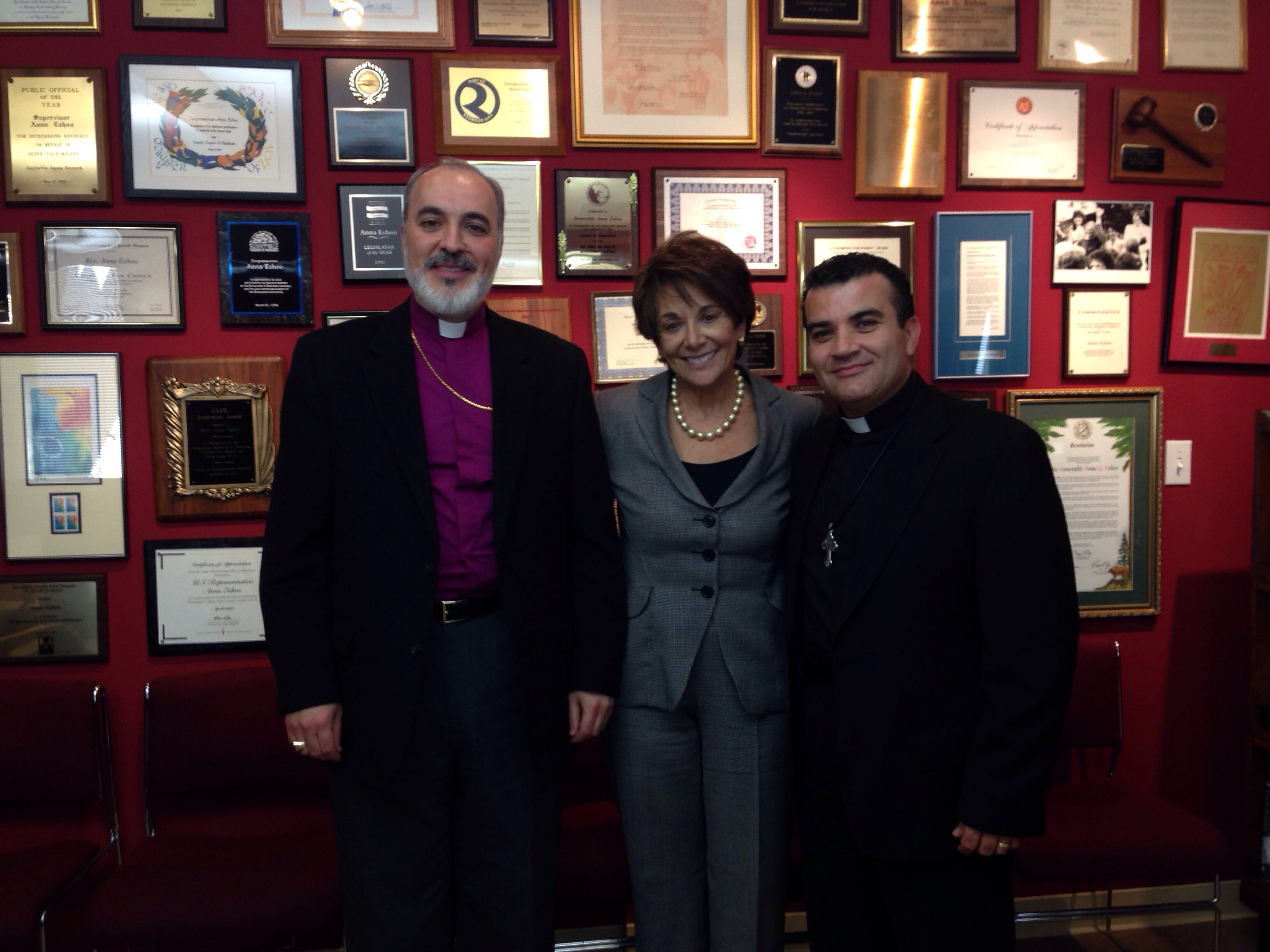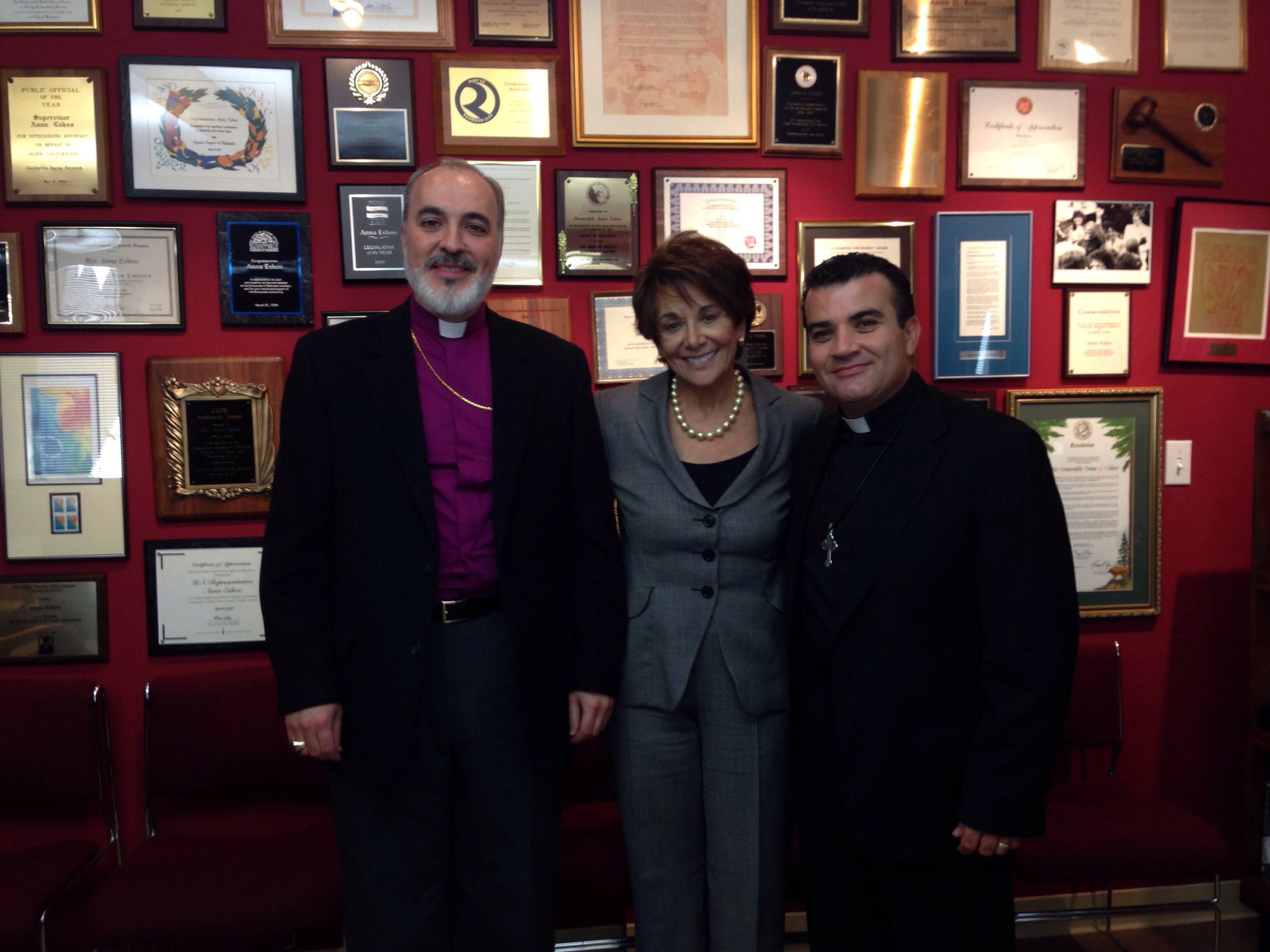On the afternoon of Wednesday, November 6, 2013 His Grace Mar Awa Royel, Bishop of the Diocese of California and Secretary of the Holy Synod visited Congresswoman Anna Eshoo (CA – 18th Congressional District) at her Palo Alto, California office. His Grace was accompanied by Rev’d Fr Genard Lazar, his secretary and Mar Zaia Cathedral parish priest in Modesto.
In a most cordial and warm colloquium, His Grace and the Congresswoman discussed matters pertaining to the plight of Assyrian Christians in the Middle East, in particular Iraq and Syria. The bishop briefed the Congresswoman in detail concerning the many hardships faced by the Assyrians in Iraq and Syria, amidst volatile and unstable conditions in those countries. Among the most pressing concerns of the Assyrians in these countries, the bishop informed the Congresswoman, is the matter of forced migration outside of the historical homeland and immigration to the west.
Many who have left these countries for fear of their lives on account of persecution are stranded in host countries for an untold period of time until they are given visas to come to the West. In particular, The Office of the United Nations High Commissioner for Refugees (UNHCR) has registered thousands of immigrants who are waiting endlessly to be granted visas to come to the US and other countries. In the interim, these families face numerous social and economic hardships trying to survive until they are able to leave the Middle East.
Other issues discussed with the Congresswoman included the continued and on-going systematic persecution of the Assyrian Christians, and other Christians as well as minorities, in these countries. As an active and founding member of a caucus made up of a number of US Congressmen, Congresswoman Eshoo vowed to take these issues and concerns back to her colleagues in Congress, and to take certain practical measures to address these concerns of the Assyrian Christians in the governmental forums in Washington. Also discussed was the matter of the kidnapped bishops of Syria, and suggestions were given for practical measures to addressing this issue with neighboring countries.
 Assyrian Church News Official News Site of the Holy Apostolic Catholic Assyrian Church of the East
Assyrian Church News Official News Site of the Holy Apostolic Catholic Assyrian Church of the East


